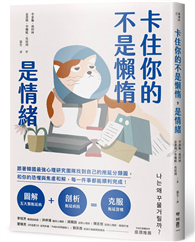About 40 years after the onset of the so-called second demographic transition, Marriage in Motion examines the underlying processes and correlates of spouses' satisfaction with marriage. Among other things, this transition has been characterized by an upward trend of divorces turning marriage into a vulnerable institution. It is, therefore, of utmost importance to gain insight in the features of longer-term marriages. The present study is directed towards the generation that instigated the quantitative and qualitative changes in the private sphere. Using longitudinal data of a representative sample of married husbands and wives in the Netherlands, Marriage in Motion tackles several issues that are relevant to contemporary marital life. How do economic and cultural factors affect spousal marital satisfaction? What role does communication play in understanding husbands and wives' satisfaction with marriage? How do parenting experiences spill over to the spousal system? What are the implications of masculine and feminine self-definitions on partners' evaluation of marriage? The elaboration of these and other related questions offer the reader a broad picture of the role of gender, communication, parenting and individuals' socioeconomic position in understanding spousal marital experiences.
| FindBook |
有 1 項符合
Marriage in Motion: A Study on the Social Context & Processes of Marital Satisfaction的圖書 |
 |
Marriage in Motion: A Study on the Social Context & Processes of Marital Satisfaction 作者:Van Den Troost 出版社:Leuven University Press 出版日期:2005-02-15 語言:英文 規格:平裝 / 302頁 / 23.4 x 15.5 x 1.8 cm / 普通級 |
| 圖書館借閱 |
| 國家圖書館 | 全國圖書書目資訊網 | 國立公共資訊圖書館 | 電子書服務平台 | MetaCat 跨館整合查詢 |
| 臺北市立圖書館 | 新北市立圖書館 | 基隆市公共圖書館 | 桃園市立圖書館 | 新竹縣公共圖書館 |
| 苗栗縣立圖書館 | 臺中市立圖書館 | 彰化縣公共圖書館 | 南投縣文化局 | 雲林縣公共圖書館 |
| 嘉義縣圖書館 | 臺南市立圖書館 | 高雄市立圖書館 | 屏東縣公共圖書館 | 宜蘭縣公共圖書館 |
| 花蓮縣文化局 | 臺東縣文化處 |
|
|
圖書介紹 - 資料來源:博客來 評分:
圖書名稱:Marriage in Motion: A Study on the Social Context & Processes of Marital Satisfaction
|











